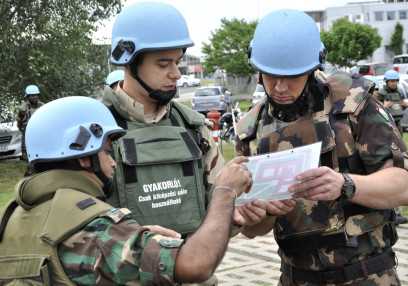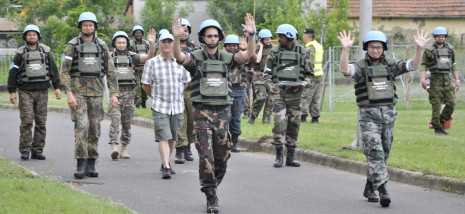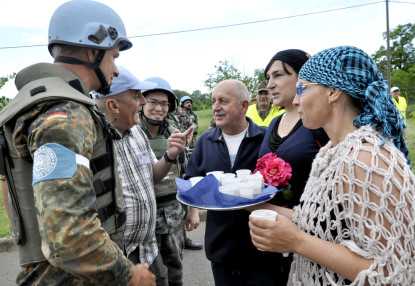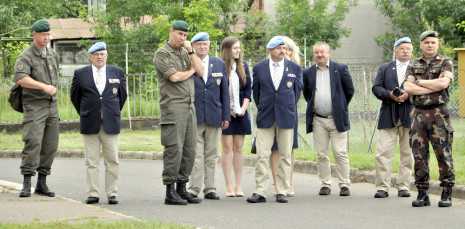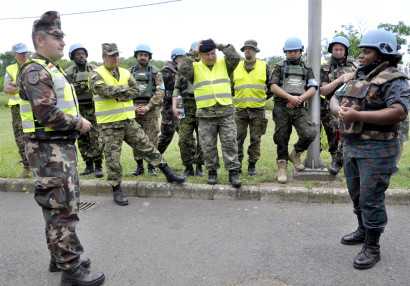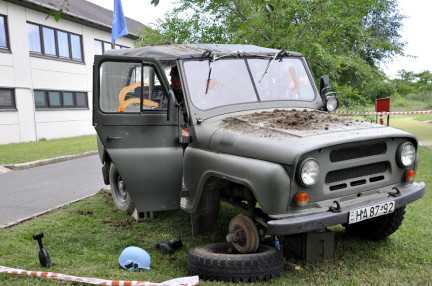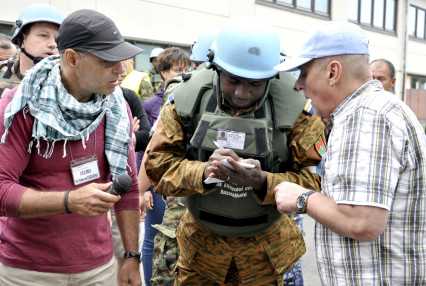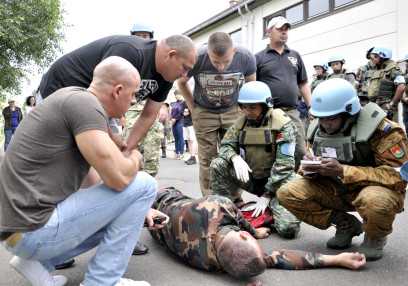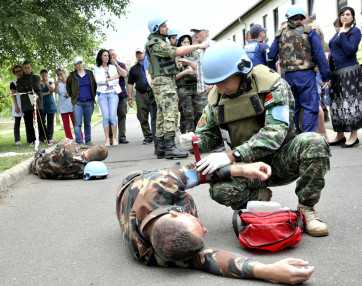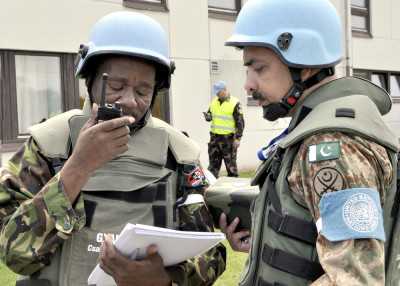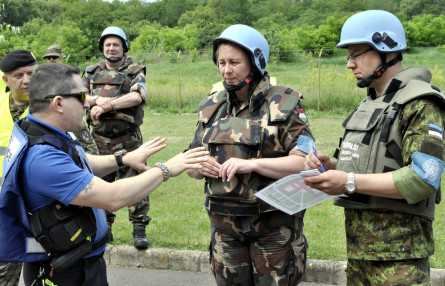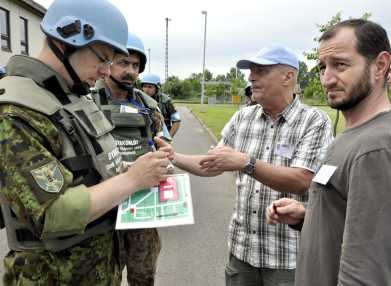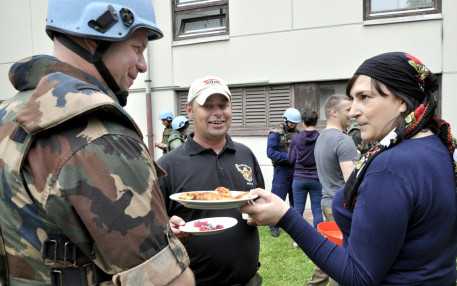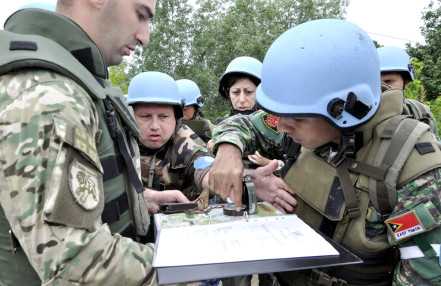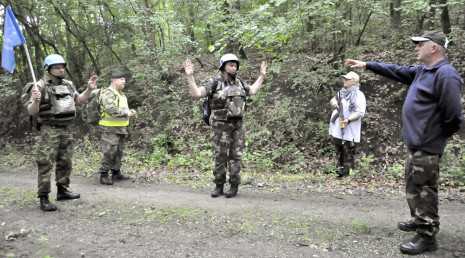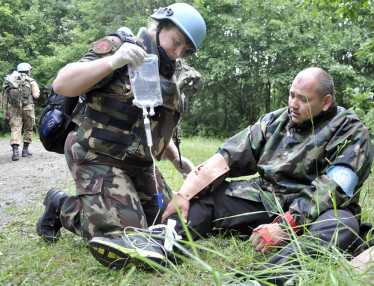Unarmed Guardians of Peace
Szöveg: Sándor Galambos | 2016. június 8. 9:00The 31st International Military Observer Course (IMOC) has continued with practical training events. The culmination exercise for the students enrolled on the three-week course organized by the HDF Peace Support Training Centre (Szolnok) is being conducted in Szolnok and its environs on 8–9th June.
Galéria
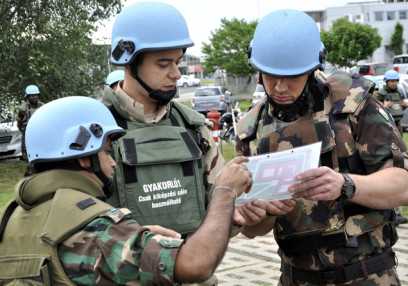
The 31st International Military Observer Course (IMOC) is drawing to a close. During the first week of the course – which is officially recognized by the United Nations Department of Peacekeeping Operations (UN DPKO) –, the seven Hungarian students and another 23 foreign ones coming from 22 countries (Australia, Burkina Faso, China, East Timor, Egypt, Estonia, France, Georgia, Germany, Israel, Jordan, Kazakhstan, Macedonia, Pakistan, Palestine, Serbia, Sri Lanka, Swaziland, Togo, Tunisia, Ukraine, Zambia) mainly attended presentations that facilitated them to acquire or brush up on the basics of the unarmed military observers’ work.
From Week Two onwards, however, the students are participating in practical training sessions and go on field exercises to use what they had already learnt in the classroom. The first situation training (with exercise injects) was held at the base of the HDF PSTC, where the participants were divided into patrols and tasked with handling five different realistic conflict situations while operating in the constant “distracting" presence of the “local media". In each situation, one of the patrols was always supposed to take action while the other three were watching the task execution, and then evaluated the work of the active patrol together with members of the International Permanent Instructor Corps.
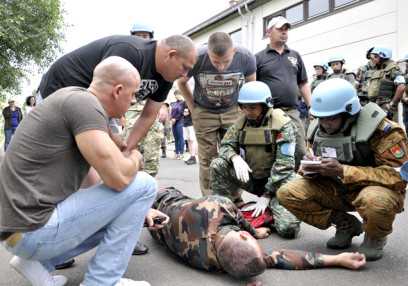
During the field exercise, the trainees first had to pass through an illegal checkpoint set up by insurgents, and then they were tasked with freeing a kidnapped UN observer. According to the fictitious scenario, he was being held captive by the local tribal leader – the father of a girl allegedly raped by him – and his family members, who wanted to force him into marrying her. At another scene, the soldiers of the patrol administered first aid to two severely injured UN military observers who had had an accident when they drove their all-terrain vehicle onto a minefield. In what followed, the patrol had to take measures among an unruly crowd, because under the scenario, a refugee family would have liked to move back to their home, believed to be abandoned, but in fact it had already been occupied by a squatter family for years. Finally, the members of the patrol “found themselves" amidst some celebrating local tribesmen, where they were served some meals of rather suspicious quality, so they faced a dilemma: if they refused the invitation, the tribal leader would take offence, but if they chose to eat the food and drink that had an “extraordinary taste", they may have a seriously upset stomach.
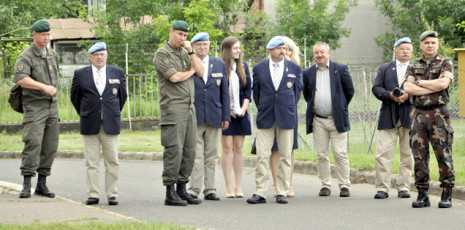
The exercise in Szolnok was running in the presence of members of the Peacekeepers’ Group of Vas County, an organization led by Capt. (Ret.) György Oláh that operates as part of the Vas Honvéd Comradeship Association, and of representatives from the Burgenland territorial organization of the Association of Austrian Peacekeepers, who were staying in Hungary at the invitation of the Hungarian comradeship association.
In what followed, the series of field exercises continued with a daylong complex patrol training event in the area of Egerbakta–Felnémet, where the would-be UN Blue Berets had to handle various scenarios. They manned checkpoints, conducted HUMINT to gather intelligence from the local population and the headmaster, entered into negotiations with the insurgents in order to be able to pass through an illegal checkpoint set up by them, and administered first aid to a serviceman who had been severely injured in a mine explosion.
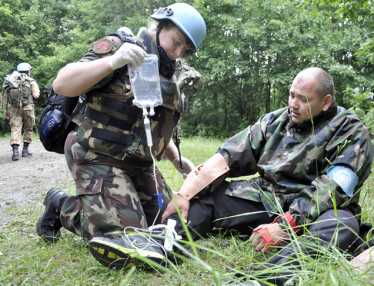
Capt. Róbert Bolesza, acting head of the training division at the HDF Peace Support Training Centre told us that the situations (injects) and the mock-ups for signaling in the exercise scenarios were not merely imaginary ones. During their tour, the would-be UN observers may encounter similar or even more problematic situations and challenges. That is because the best scriptwriter is life itself, which is hard to compete with. At the same time, it can be stated that the core planning team (CPT) and the directing staff (DISTAFF) of the exercise, as well as the soldiers executing the signals have all done their best in order to create the most realistic circumstances for the trainees. The field patrol exercise helped the supervisors to assess the command and decision-making skills of the training audience, and the students had opportunity to test their own limits in various situations, including crisis scenarios.
Photos by the author
